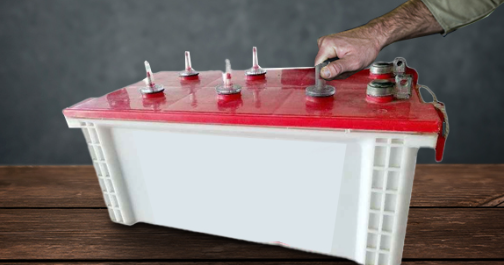
As the quest for steady power increases daily, many homeowners now use solar power as an alternative. Solar systems are a good source of electricity but sometimes have some issues such as Inverter battery discharging quickly.
If your inverter drains the battery fast, follow these steps to fix it.
What is an inverter?
An inverter is an electronic device that converts direct current (DC) into alternating current. It is used in solar power systems.
DC current is the type of electricity produced by batteries and solar panels while AC is the type we use in our homes.
The work of an inverter is to convert a dc current to an alternate current so we can use it to power our home appliances.
Role of inverters and batteries in power backup systems
During normal operation when the main grid is still supplying power, the inverter may be off, and the batteries remain charged by the grid or solar panels.
If there is a power outage, the inverter automatically detects the absence of AC power and switches ON. The inverter draws the DC power from the batteries and converts it to AC, powering the electrical devices.
When the grid power returns, the inverter turns off again to allow the battery to charge.
Reasons your inverter battery discharges quickly
There are several factors that can cause inverter batteries to discharge fast. These include:
Improper Battery Maintenance
Improper battery maintenance can lead to a quicker discharge of an inverter battery. Neglecting to clean the battery terminals, not maintaining the water levels, and not checking the battery health can all reduce the lifespan of the battery.
Make sure you follow the manufacturer guidelines for battery maintenance to ensure longevity
Using a high load on the inverter
When you plug too many appliances on the inverter, it will draw more energy from the battery to serve those devices. This excessive load can lead to a quick discharge of the battery.
It is important to manage the use of electrical appliances to reduce the load on the battery and inverter.
Low-quality inverters
A low-quality inverter can make your battery drain faster because of energy loss during conversion. Inverters are known to convert DC to AC currents for home use.
A low-quality inverter may lose lots of energy during the conversion. So, it is advisable to choose a reliable brand of inverter, for high energy efficiency, and better battery retention.
Aging battery
Batteries come with a limited lifespan that decreases as they get older. If your battery has been in use for a long time, you will notice a decline in the battery capacity to hold charges.
This can be fixed by replacing the old battery to maintain optimal performance.
Environmental factors
The type of environment you keep your battery in will also affect its performance. Your battery should be in a well-ventilated place to save the battery from overheating.
Avoid keeping your battery in direct sun, or exposing it to moisture to extend the life of your inverter battery.
Ways to prevent your inverter from draining its battery bank
There are several ways you can prevent inverter battery drains, these include:
Buying a quality battery
The first step to preventing the inverter from draining the battery is to buy a quality battery. Tubular batteries are known for these features. They are built to withstand deep discharge unlike car batteries.
Lithium batteries are also good for the solar system.
When going for a lithium or tubular inverter battery, make sure you consider the capacity (Ah) brand reputation and warranty.
Install and charge the battery fully
For optimal performance of the solar system, make sure it is installed properly. Call a professional solar engineer if you cannot do it yourself.
Make sure the battery is fully charged before using it for the first time. You can see the state of charge of the battery through the charge controller.
Check the water level
Tubular batteries require periodic checking of the water level in the battery cell. Ensure you do this once every four to six months and top it up with distilled water when needed.
Neglecting this can reduce battery life.
Inspect and clean battery terminals and inverter cables
Dust can accumulate on the battery terminal, leading to poor conduction of electricity. Always inspect the wires and battery terminals for dust, damage or rusting. Clean and replace when necessary.
Don’t overload the inverter
When you plug many loads on an inverter, it will draw more power making your battery drain faster. Avoid overloading the inverter by understanding its load capacity.
Use a quality inverter
A good quality inverter will ensure an efficient energy conversion, reducing energy loss.
Need a professional? Call masscleanelectricity
If your inverter battery is discharging quickly and you cannot troubleshoot and fix it by yourself, or you want to install a new solar system in your home, call us for professional guidance.
